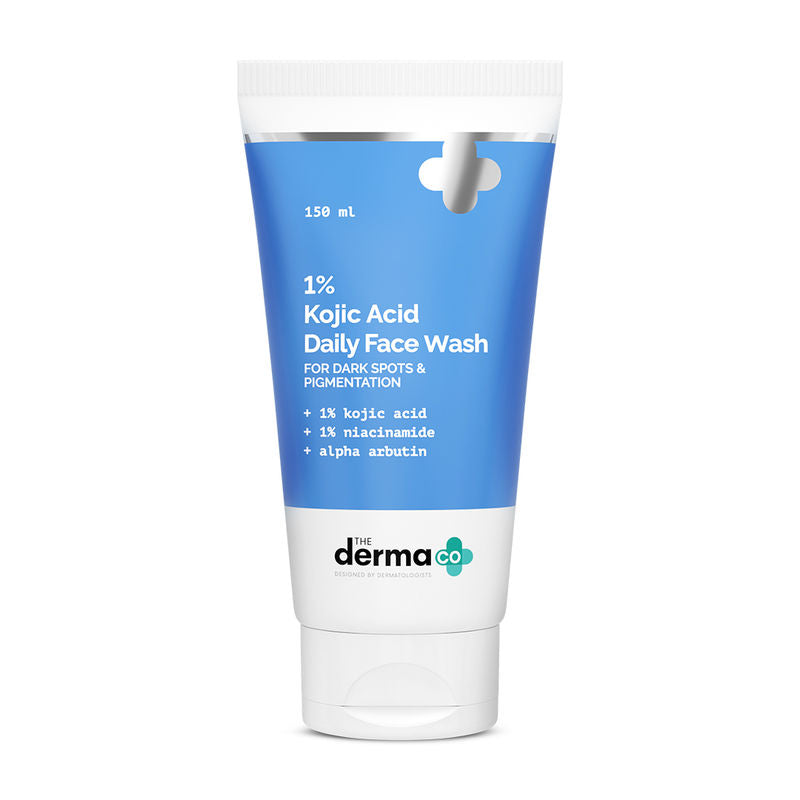
Highlights
WHAT IS IT?
Face Wash with 18 ingredients
FEATURES
Contains 1% Kojic Acid and Niacinamide, targets dark spots & pigmentation, gentle cleansing with moisturizing agents, suitable for normal to dry skin
BEST FOR
sensitive
CHECKS
Contains preservatives, contains fragrance is not explicitly mentioned
Who Is It For?
All Genders No Specific Age Range MentionedWhat Does It Help With?
Dark Spots Pigmentation Skin Brightening HydrationBudget
Affordable (under $30)How To Use
Which routine should it be used in?
Instructions:
Key Information










What The Derma Co Says
Product Description:
Face wash formulated with 1% Kojic Acid and Niacinamide to help reduce dark spots and pigmentation. Includes moisturizing and skin brightening ingredients for effective cleansing and skin improvement.
About the Brand:
Ingredients Overview
Ingredients List
myristic-acid,glycerin,aqua,potassium-hydroxide,propylene-glycol,stearic-acid,decyl-glucoside,lauric-acid,glycol-distearate,cocamidopropyl-betaine,xylitol,glucose,anhydroxylitol,phoenix-dactylifera-date-palm-extract,kojic-acid-dipalmitate,niacinamide,sodium-pca,glyceryl-stearate,phenoxyethanol,polyquaternium-7,titanium-dioxide,sodium-metabisulfite,butylated-hydroxytoluene,vitamin-e,pentaerythrityl-tetra-di-t-butyl-hydroxyhydrocinnamate,disodium-edta,glyceryl-glucoside,alpha-arbutin
Key Ingredients
Kojic Acid,Niacinamide,Alpha Arbutin
Ingredients Details
Alpha-arbutin
Anhydroxylitol
Glucose
Glycerin



